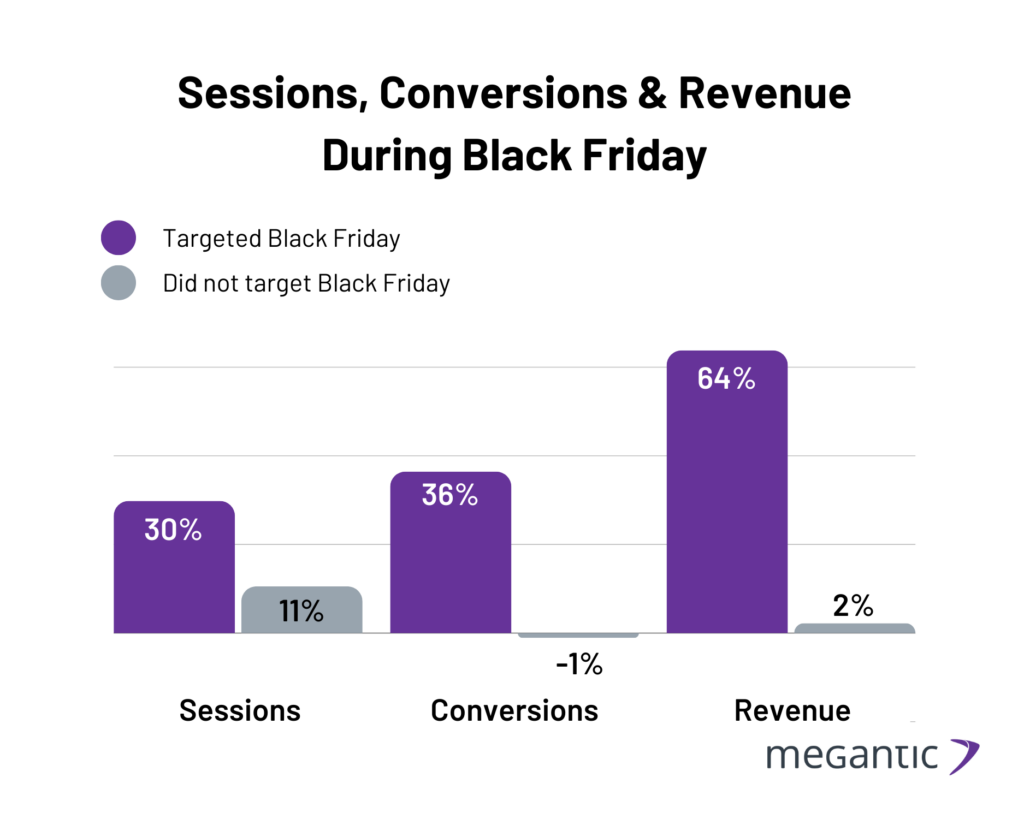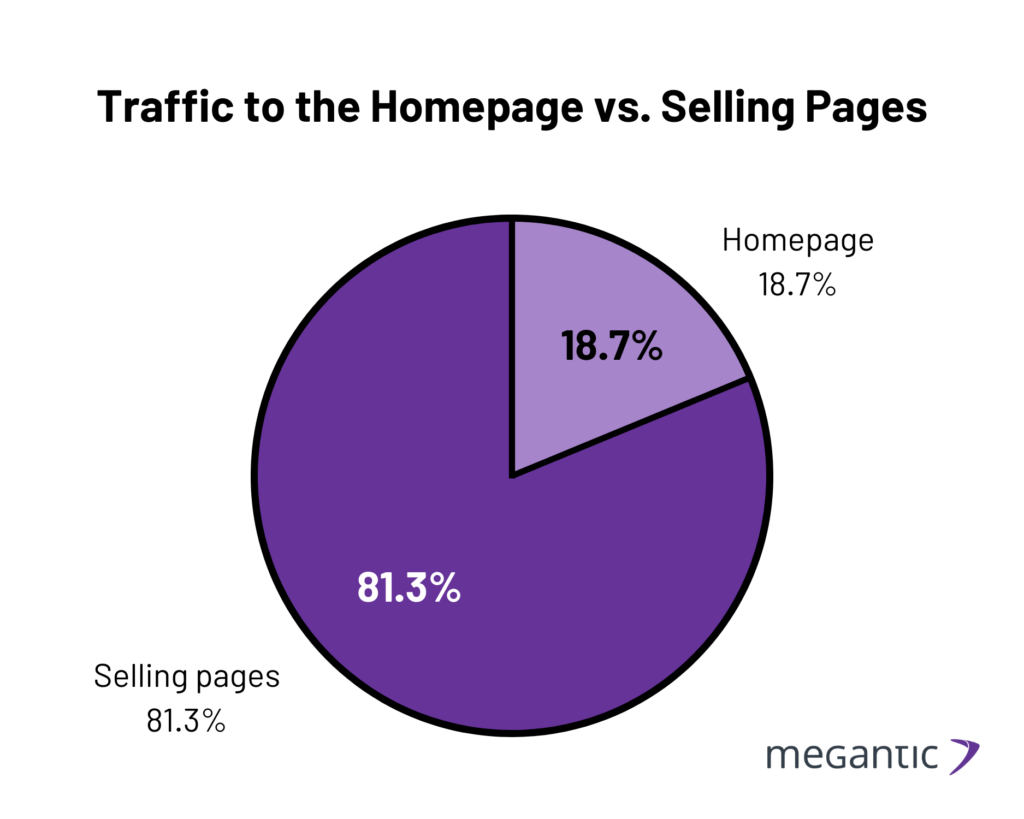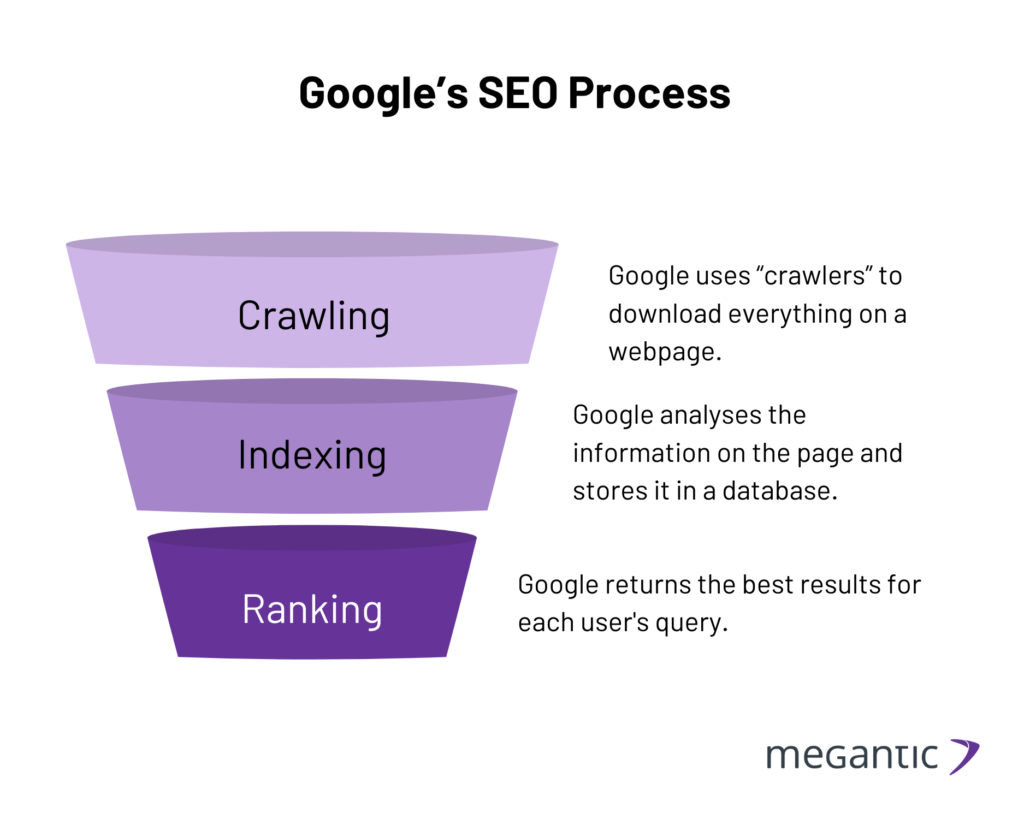Debunking SEO Myths for a Stronger Sales Season
27 November 2024 Blog Posts
Did you know some eCommerce businesses lose out on thousands in revenue during sales seasons when they neglect SEO? From Black Friday to the End of Financial Year sales, the right SEO approach can make or break your results.
Our clients who participated in Black Friday SEO strategies in 2023 had 65% more website traffic, with a 3,473% higher conversion rate and 2773% higher revenue (Source), compared to clients who didn’t prioritise this sale.
However, common myths often lead businesses astray, especially if they are not working with an in-house SEO or external marketing agency. In this blog, we’re busting five big SEO myths so you can maximise your online sales and stay ahead of the competition this sales season.
Let’s get to myth-busting!
Jump ahead to the myth you want to debunk first.
- SEO Myth 1: “I only need to optimise my homepage when I have a sale.”
- SEO Myth 2: “I don’t need SEO during the sales season; I’m focusing on paid ads instead.”
- SEO Myth 3: “Discount pages don’t need SEO.”
- SEO Myth 4: “SEO is just about driving traffic, and we already have enough traffic.”
- SEO Myth 5: “Black Friday SEO ends after Black Friday and End of Financial Year SEO ends after the End of Financial Year.”

SEO Myth 1: “I only need to optimise my homepage when I have a sale.
Truth: You need to optimise all selling pages on your website.
There is some truth to this statement—your homepage is an important page to optimise for sales. You are likely used to updating a banner on the homepage and adding information about discounts, special offers, or discounted shipping. However, at Megantic, we stand strongly by our SEO strategy, which leans away from the homepage.
Our internal data has found that the optimal number of website visitors landing on your homepage versus a dedicated selling page should be approximately 20%. Learn how to optimise your traffic segments effectively.

We find that most traffic that lands on a homepage is from customers searching for your brand (i.e., branded traffic). This is great as it demonstrates that you have strong brand awareness, presence, and recall. Although too much traffic landing on your homepage means less traffic going to other pages on your website. Every extra click reduces conversion rates, so let’s focus on getting your shoppers to the right page as soon as they get to your website.
We’d rather you have educated shoppers land directly on a selling page, such as a product or category page, to make it easier to purchase. These pages should also be optimised for Black Friday.
It is widely understood in marketing that shoppers need an average of seven touchpoints before they make a purchase. New research suggests that this is actually anywhere between one and 50 touch points, depending on their buying stage (Source). So for any of those touchpoints that are a webpage, we suggest including information about the sale.
Ready to start optimising your website? Get in contact with Megantic today.
SEO Myth 2: “I don’t need SEO during the sales season; I’m focusing on paid ads instead.”
Truth: To quote Old El Paso Girl: “Porque no los dos? (Why not both?)”
Many of your competitors are doing exactly this. In fact, data shows that ad spend increases by 89% during the Black Friday season (Source). Click-through rate doesn’t increase by nearly as much to make it worth the spend, especially if your products are already on sale.
In simpler terms, with Google ads, you’re spending more to get less back.
This is a very common SEO myth. We sometimes hear that brands decide to focus on paid ads for the next quarter instead of SEO as they don’t have the funds to run both at the same time. We strongly recommend borrowing from your paid ad budget for a few months to get your website correctly optimised.
For our clients, ad performance often increases after we have optimised their website. What we do is optimise the website to best suit both customers and Google’s bots. When conflicting information is given, we prioritise your customers.
Let’s also take our extensive research stage into consideration. It is an upfront cost, but it has so many uses. For example, you can utilise our suggested keywords in your Google Ads account as keywords to target.
Also, Megantic’s SEO doesn’t increase based on the sales season or how much revenue you make a month (like Google does for ads!).
SEO Myth 3: “Discount pages don’t need SEO.”
Truth: To reiterate SEO myth 1, yes, you need to optimise all selling pages on your website.
Sales and discount landing pages are powerful traffic drivers.
Depending on the industry your business operates in, you may consider opening up a dedicated Black Friday discount page, Boxing Day discount page, or other discount page for your sales. Use keyword research to find out how many people are looking for these specific search terms and match their need with your solution (i.e., match their search with your landing page).
For example, a shopper is far more likely to search for “furniture Black Friday sale” during the Black Friday season than searching for a generic “furniture.”
By creating successful landing pages for sales that align with your customer’s needs and searching behaviours, your website can rank above competitors. Updating the website’s URLs and category pages to form a strong and logical website hierarchy has been proven to increase website discoverability through search. This results in increased sales and revenue.
All pages that you want to rank for in the top three positions on Google need to be optimised.
Our clients get to hear these insights before anyone else. Get in on the action!
SEO Myth 4: “SEO is just about driving traffic, and we already have enough traffic.”
Truth: Good SEO is about driving the best customers to your website, not bringing every possible searcher to you.
You may have enough traffic, but do you have the right traffic?
Megantic’s SEO strategy targets educated customers. That is, customers who are serious about what they want to buy and are searching for exactly that. We focus on long-tail keywords instead of short-tail keywords. For example, “green floral maxi dress” instead of “women’s dresses.” This means that we aren’t aiming for keywords with the most search volume; we are instead aiming for keywords with the most buying intent.
We like to say that we are after those customers with a “credit card in hand.”
Let’s look at an example in the automotive niche. Our research has shown us that shoppers who are searching for vehicle parts will look for the exact part that they need for their specific vehicle. A exhaust for one car may not fit a similar car, and automotive enthusiasts know that.
We would rather you have the same amount of website visitors with more sales, rather than more visits with the same amount of sales.
So we create new pages on your website that display the exact products your customers are searching for, making it super easy for them to check out and purchase. It’s called our single-click purchase strategy.
SEO Myth 5: “Black Friday SEO ends after Black Friday, and End of Financial Year SEO ends after the End of Financial Year.”
Truth: SEO isn’t a one-time thing. Every change you make to your website today will continue to have impacts into the future.
Unlike other forms of marketing, SEO isn’t a quick fix or a one-time thing. It can take months to see results (Source). SEO is a long-term, constantly evolving process that every website needs to survive and thrive.
Typically, we and other SEO agencies find that SEO will take around six months to start showing results. For Megantic, this six-month countdown starts when Stage 3, or ongoing SEO, begins.
Google works through three steps to complete its mission of serving users the best result (Source).
- Crawling: Google uses “crawlers” to download everything on a webpage, including text, images, and videos.
- Indexing: Google analyses the downloaded information and stores it in a database.
- Ranking: Google returns the best results for each user’s query, ranked in the order it thinks will best answer the search query.

So Google won’t simply stop showing a dedicated sale page after the sale ends. It will continue ranking the page as long as it is the best result for a searcher’s query. Instead of starting from zero every year, you’ll start a few steps ahead.
Optimising for Black Friday, for example, you could also improve the visibility of your business during Cyber Monday, Christmas, Boxing Day, and into next year’s sales seasons.
Takeaways
SEO is not a quick fix, and it certainly doesn’t end after the sales season. By dispelling these myths and focusing on ongoing optimisation, you ensure that your website is primed for both short-term sales boosts and long-term growth.
To recap:
- Optimise more than just your homepage—your selling pages are key.
- Combine SEO with paid ads for a balanced and cost-effective strategy.
- Discount pages need SEO to capture specific search intent.
- It’s not just about traffic, it’s about attracting the right traffic.
- SEO shouldn’t be seasonal or turned on and off. It builds long-term value that carries into future sales seasons.
By debunking these myths and focusing on a tailored SEO strategy, your website can gain a competitive edge.
Ready to take your SEO to the next level? Get in touch with the Megantic team today to optimise your site for success.





